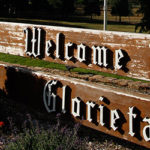A federal magistrate in Albuquerque, N.M., recommended the U.S. District Court dismiss suits filed by leaseholders of property at Glorieta Conference Center against LifeWay Christian Resources and other parties.
The magistrate also recommended denying a request for a temporary restraining order or preliminary injunction to block the property transfer.
Thom RainerKirk and Susie Tompkins of Little Rock, Ark., who filed the legal complaints, have 14 days to file objections to the proposed findings and recommendations by U.S. Magistrate Judge Robert Hayes Scott. Tompkins insisted he intends to file written objections and petition the court to grant a date for a jury trial.
“The judge’s recommendations could not be more positive,” said Thom Rainer, LifeWay president and CEO, who was named individually in the suit. “We are particularly gratified the judge says the plaintiffs’ charges have ‘no basis in fact,’ leaving no doubt of LifeWay’s integrity throughout this entire process.
“LifeWay looks forward to the court’s final ruling and an end to this frustrating, painful and costly process.”
Glorieta Baptist Assembly opened as Southern Baptists’ western conference center in 1952. The Sunday School Board of the Southern Baptist Convention, which changed its name to LifeWay in 1998, operated Glorieta six decades. For about 20 years, the conference center reported financial difficulty.
Suit alleged LifeWay lacked authority to sell
Tompkins alleged LifeWay trustees lacked authority to sell the property on which leaseholders built homes at Glorieta without approval by messengers at two SBC annual meetings. They sought damages totaling $12.4 million for themselves and others affected by the sale of Glorieta to a new corporation called Glorieta 2.0.
“The homes and church lodges, once belonging to individuals and churches that helped build Glorieta, are now staff housing or rental property. Beautiful residences originally owned by individuals, many of whom poured their life work for the cause of Christ, and their life savings into their only home to minister and to host fellow Christians, were pushed out so that their residences can be rented for up to $900 a night,” Tompkins said.
Sign up for our weekly edition and get all our headlines in your inbox on Thursdays
 A federal magistrate recommends dismissal of the suit by leasdeholders against LifeWay Resources’ sale of Glorieta Conference Center to the Christian camping group Glorieta 2.0 in 2013.Tompkins claimed LifeWay and the Southern Baptist Convention did not follow their own constitution and bylaws in deciding to sell the property. The lawsuit maintained the original 1950 warranty deed grants the conference center property to the SBC Executive Committee, and no other transfer of deed is on record.
A federal magistrate recommends dismissal of the suit by leasdeholders against LifeWay Resources’ sale of Glorieta Conference Center to the Christian camping group Glorieta 2.0 in 2013.Tompkins claimed LifeWay and the Southern Baptist Convention did not follow their own constitution and bylaws in deciding to sell the property. The lawsuit maintained the original 1950 warranty deed grants the conference center property to the SBC Executive Committee, and no other transfer of deed is on record.
Tompkins’ suit claimed LifeWay’s officers and directors failed in their fiduciary duties by selling 2,400 acres in the Sangre de Cristo Mountains near Santa Fe, N.M., for $1. The lawsuit also claimed leaseholders were treated unfairly when LifeWay canceled leases homeowners believed were recurring.
Glorieta 2.0 gave leaseholders three options regarding their houses—accept a $30 per square foot buyout, with a minimum $40,000 and maximum $100,000 payment, regardless of appraised value; enter a new 12-year lease, with the understanding that at the end of the lease, the building would go to Glorieta 2.0 for no compensation; or donate the building to Glorieta 2.0.
Plaintiffs lacked legal standing
In his report and recommendations to the court, Scott found the plaintiffs lacked legal standing to assert LifeWay was not authorized to sell the conference center to Glorieta 2.0 or to assert other leaseholders’ possible claims against LifeWay.
“LifeWay owned the Glorieta Conference Center and therefore had the authority to sell its property,” Scott wrote. He noted LifeWay is governed by its trustees, who are authorized to sell, lease or otherwise dispose of LifeWay’s property, and the SBC only needs to authorize a sale when it involves “all or substantially all” of the agency’s holdings.
Tompkins maintains his assertion that Sante Fe county records show LifeWay “did in fact illegally sell Glorieta to a Texas commercial developer, not a tax-exempt Christian company.”
However, Scott found no basis for claims of fraud, negligence or breach of implied contract. Regarding a request that the court ask the FBI to investigate the defendants’ conduct, he wrote, “No conceivable reason exists to do so.”
“Although plaintiffs have asserted throughout this case that defendants have engaged in a fraudulent conveyance of land and made fraudulent misrepresentations, and have flung around accusations of money laundering, racketeering, conspiracy and other unidentified misconduct, plaintiffs have no come forward with any evidence to support these claims. Plaintiff’s allegations of fraud and criminal misconduct are baseless and have no foundation in the evidence,” Scott wrote.
Holding out hope for a jury trial
Tompkins insisted he holds out hope a jury will “decide justice” for Glorieta leaseholders, and he continues to assert dishonesty by the parties named in his suit.
“In essence, plaintiffs allege the defendants’ fraud is the intentional deception of Glorieta homeowners and church lodge owners for monetary and/or personal gain to a select few,” he wrote in an email.
“The Southern Baptist Convention is allowing LifeWay to loot the church members and their own fellow Christians of their life savings invested in their homes and lodges on the campus of the multimillion-dollar SBC Glorieta Conference Center, paid for by contributions from members of SBC churches.”














We seek to connect God’s story and God’s people around the world. To learn more about God’s story, click here.
Send comments and feedback to Eric Black, our editor. For comments to be published, please specify “letter to the editor.” Maximum length for publication is 300 words.